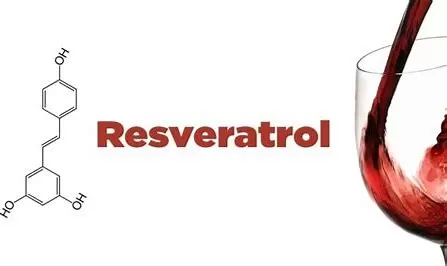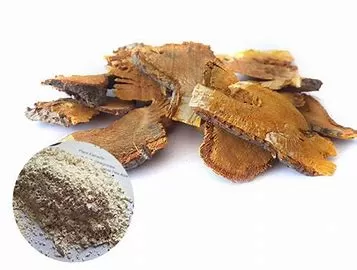- 0086-571-85302990
- sales@greenskybio.com
Is resveratrol safe for the liver?
2025-04-25
Resveratrol, a polyphenolic compound found naturally in foods such as grapes, berries, and red wine, has garnered significant attention for its potential health benefits. Widely studied for its antioxidant and anti-inflammatory properties, resveratrol is often touted as a promising compound in the fight against aging, chronic disease, and metabolic conditions. However, as its popularity continues to rise, an important question arises: Is resveratrol safe for the liver? In this article, we will explore the existing research on resveratrol, focusing on its potential effects on liver health, and discuss the considerations and recommendations for its consumption.
Understanding Resveratrol and Its Benefits
Resveratrol belongs to a class of compounds known as stilbenoids. It is primarily concentrated in the skins of red grapes, Japanese knotweed, blueberries, and other berries. As an antioxidant, resveratrol helps protect cells against oxidative stress and damage caused by free radicals. This capability positions it as a potentially beneficial supplement for enhancing cardiovascular health, supporting metabolic functions, and providing neuroprotective effects.
Decades of research suggest that resveratrol can mimic the effects of caloric restriction, a process known to extend lifespan in various organisms. Its role in activating sirtuins, a family of proteins involved in cellular regulation, offers insight into how resveratrol may exert its health-promoting effects, including those related to anti-aging and longevity.
Resveratrol and Liver Health: What Does the Research Say?
1. Antioxidative and Protective Effects: The liver is a vital organ responsible for detoxification, metabolism, and nutrient storage. It is susceptible to damage from oxidative stress, inflammation, and various toxins. Resveratrol's antioxidant properties suggest potential protective benefits for the liver. Laboratory studies have demonstrated that resveratrol can reduce oxidative stress markers in liver cells, thereby potentially minimizing damage and improving liver function.
2. Impact on Fatty Liver Disease: Non-alcoholic fatty liver disease (NAFLD) is a common condition characterized by excess fat accumulation in the liver. Research indicates that resveratrol may help mitigate the severity of NAFLD by improving lipid metabolism, reducing liver inflammation, and enhancing insulin sensitivity. Animal studies and small human clinical trials have shown promising results, suggesting that resveratrol supplementation could play a supportive role in managing fatty liver disease.
3. Liver Fibrosis and Cirrhosis: Liver fibrosis, a condition marked by excessive scar tissue in the liver, can progress to cirrhosis, a more severe form of liver damage. Preliminary studies have explored resveratrol's potential to inhibit fibrotic processes in the liver. By modulating pathways involved in liver injury and repair, resveratrol may contribute to reducing the progression of liver fibrosis. However, more extensive clinical trials are needed to validate these findings in humans.
4. Detoxification and Xenobiotic Metabolism: The liver plays a crucial role in detoxifying and metabolizing various substances, including drugs and environmental toxins. Resveratrol has been shown to modulate enzyme activity related to detoxification pathways, potentially enhancing the liver's ability to manage harmful compounds. These effects may support overall liver health and function, although further investigation is required to understand the mechanisms and implications fully.
Safety Considerations and Recommendations
While the existing research on resveratrol is promising, it is essential to consider safety and appropriate dosing, especially concerning liver health:
1. Dosage and Supplement Forms: Resveratrol supplements are available in various forms and dosages. Most studies investigating liver health use moderate doses, typically ranging from 100 mg to 500 mg per day. However, it is crucial to note that high doses of resveratrol may exert different effects and could potentially lead to adverse outcomes. Therefore, it is advisable to adhere to recommended dosages and medical guidance when considering supplementation.
2. Potential Interactions: Resveratrol may interact with certain medications, including those metabolized by the liver. It is essential for individuals taking prescription drugs or with preexisting liver conditions to consult a healthcare professional before starting resveratrol supplementation. Healthcare providers can provide guidance on compatibility and potential risks associated with its use.
3. Individual Variability: The effects of resveratrol on liver health may vary depending on individual factors such as genetics, existing health conditions, and lifestyle. Personalized assessments and monitoring are recommended for individuals considering resveratrol, ensuring that it fits within their broader health management strategy.
4. Long-Term Use: While short-term resveratrol use appears to be well-tolerated, the long-term effects on liver health have yet to be fully elucidated. Continued research and clinical trials will further clarify the impact of chronic supplementation on the liver and whether any potential risks emerge over extended periods.
Conclusion
Resveratrol presents a promising avenue for supporting liver health, owing to its antioxidative, anti-inflammatory, and potentially protective properties. Existing studies suggest beneficial effects in managing conditions such as NAFLD and liver fibrosis, though more research is needed to confirm these effects in human populations. When considering resveratrol supplementation, it is crucial to approach it with care, taking into account appropriate dosages, potential interactions, and individual health factors.
As scientific understanding of resveratrol continues to evolve, staying informed and consulting healthcare professionals will contribute to making safe and beneficial choices regarding liver health and overall well-being.
-
Does Coffee Contain Resveratrol?
2025-04-25
-
What fruit is highest in resveratrol?
2025-04-25
-
Is resveratrol safe for kidneys?
2025-04-25














